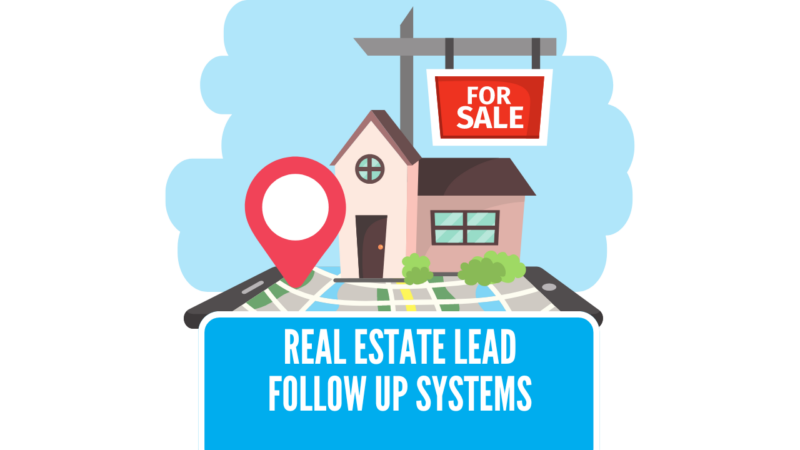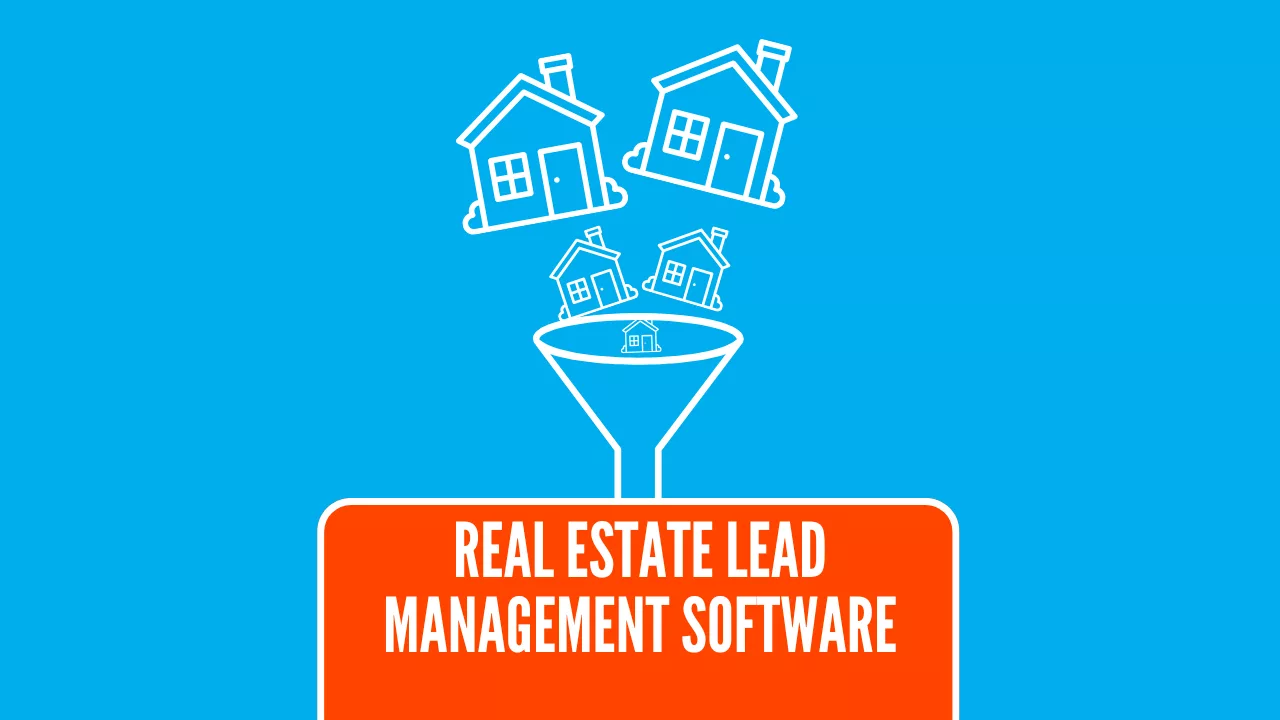Converting real estate leads into clients requires an effective lead follow up system real estate. This guide will teach you how to structure your follow-up process, centralize your leads, and use CRM tools to ensure no lead is overlooked. Learn the essential steps to maximize your conversion rates.
Key Takeaways
A structured lead follow-up system is essential in real estate to prevent missed opportunities and improve client retention.
Centralizing leads in a CRM boosts productivity by managing all communications in one place, making follow-ups easier and more efficient.
Personalized and multi-channel communication strategies, including phone calls, emails, and texts, significantly enhance lead engagement and conversion rates.
Importance of a Structured Lead Follow Up System

A structured lead follow-up system in the real estate industry ensures every lead counts, maximizing each client’s potential lifetime value. Without this, business growth and client retention are at risk. A disorganized follow-up process often results in missed opportunities and lost revenue.
Regular communication ensures your services remain top of mind, increasing the chances of converting leads into paying clients. Continuous follow-up, even if it lasts up to two years, is worth the effort for a thriving real estate business and understanding the real estate process.
Real estate agents often struggle with organizing numerous leads and ensuring none are overlooked. A well-structured real estate agent management system prevents leads from being lost and tracks conversations in real-time, improving conversion chances.
Regular follow-up ensures prospects remember your services, with 50% of non-essential sales occurring after the fifth contact. Persistence and a well-defined follow-up strategy are crucial for converting leads into satisfied clients.
Centralizing Your Real Estate Leads

Centralizing real estate leads into one location is the first step in effective lead management. A centralized CRM helps manage all leads, documents, and communications, enhancing productivity and ensuring no leads fall through the cracks.
A central command center for leads ensures effective management and easy access to data from various sources, helping agents make informed decisions. Cloud-based CRM solutions allow real estate professionals to access lead information anytime and anywhere, facilitating follow-ups.
A single platform for lead management minimizes time spent on administrative tasks, allowing agents to focus on client interactions. A centralized process improves productivity and ensures every potential client receives the attention they deserve.
Utilizing Real Estate CRM Tools
CRM tools automate lead tracking and follow-up processes, reducing the risk of leads falling through the cracks. A robust CRM system is a core component of successful real estate lead follow-up, offering functionalities like tracking interactions, setting reminders, scheduling follow-ups, and segmenting leads.
These tools help visualize the client journey and identify stages for improved engagement. CRM tools enable agents to note leads’ preferences and circumstances, enhancing personalized communication. Drip email campaign software saves time and ensures regular follow-up with potential clients.
An effective follow-up system includes automated and manual texts, phone calls, emails, and in-person meetings. If a lead does not reply to the initial text, automatic email follow-ups maintain engagement. Leveraging technology streamlines the follow-up process, enhancing efficiency and effectiveness in converting leads into clients.
Multi-Channel Communication Strategies
Multiple communication channels enhance engagement and improve lead conversion chances. Effective methods include phone calls, emails, texts, and CRM tools that integrate these channels. Following up twice a week and within the first ten days maintains engagement and keeps you top of mind.
Limit follow-up to two contact methods per day to avoid appearing pushy.
Here’s how to effectively use phone calls, email campaigns, and text messages as part of your follow-up strategy.
Phone Calls: Building Personal Connections
Building rapport through phone calls establishes trust with leads. Making leads feel supported during the selling process significantly enhances their likelihood of converting into clients. Communication should be concise and informative, focusing on value and addressing lead concerns without overwhelming them.
Leads may hesitate to answer calls from unfamiliar numbers, so reassure them about your intent and provide context during the initial contact. Effective follow-up techniques include leaving a helpful voicemail, encouraging contacts, and creating urgency with timely updates by highlighting favorable market conditions.
A phone script keeps conversations focused and ensures all necessary points are covered without overwhelming the lead. Regular contact and valuable information during phone calls nurture leads and move them closer to a decision.
Email Campaigns: Providing Valuable Insights
Email campaigns provide valuable insights and maintain engagement with leads. Including actionable insights and industry reports in your emails keeps leads informed and engaged. Emailing trends in home listings and sales keeps agents top of mind and informs leads about market trends activity.
Targeted email campaigns nurture leads effectively through their buying journey. These campaigns inform leads and foster lasting relationships with potential clients. Offering valuable insights and consistent email communication builds trust and keeps leads engaged.
Text Messages: Quick and Effective Follow Ups
Text messaging yields quicker responses and higher engagement compared to email. It is an effective method for timely follow-ups in real estate, crucial for maintaining engagement with potential clients.
Incorporating text messaging into your follow-up strategy enhances response rates and overall client engagement. Text messages provide quick updates, reminders, and check-ins, ensuring leads stay engaged throughout the follow-up process.
Personalizing Your Follow Up Efforts

Personalized communication fosters trust and increases conversion likelihood. Tailoring follow-up communications to reflect clients’ individual circumstances enhances engagement and builds trust. Including specifics from previous discussions in follow-ups significantly improves relationships with potential clients.
Providing localized market insights and customized property suggestions adds value and demonstrates expertise. Regularly referencing past interactions fosters a sense of continuity and care. Understanding individual client needs allows for more relevant engagement, leading to higher conversion rates.
Personalized follow-ups that directly address clients’ situations increase engagement potential. Adding small details to follow-up messages improves credibility and shows dedication. Adapting to clients’ preferred communication methods can increase response rates.
Setting Timely Reminders and Follow Up Schedules
Timely follow-up prevents losing potential customers to competitors and demonstrates professionalism. Responding to leads within the first hour significantly increases the likelihood of securing a contract. The initial response time impacts conversion rates; responding within five minutes can dramatically increase conversion chances.
Setting reminders in a follow-up system ensures that important dates and tasks are addressed promptly. Leveraging technology for alerts helps agents respond quickly to inquiries. Follow-up emails should be sent every 3-5 days to maintain engagement with leads.
Switching the time of day for follow-up can increase response rates, as leads may be more available at different times. Persistence is crucial when leads do not respond to initial communication. A consistent follow-up schedule ensures no leads are overlooked and every potential client receives prompt attention.
Evaluating and Iterating Your Follow Up Process

Evaluating your follow-up process measures effectiveness and identifies necessary adjustments. Overall response rates and conversion rates are critical metrics for evaluating lead follow-up success.
Identifying delays in response times helps optimize the lead follow-up process. Adjusting strategies based on low response rates from specific channels is crucial for improvement. Identifying roadblocks or bottlenecks enhances the lead management process.
Tracking and analyzing lead conversion metrics regularly enables agents to optimize strategies and improve outcomes. Analyzing communication channel performance aids in resource allocation for more effective engagement. Continuously evaluating and iterating your follow-up process ensures strategies remain effective and continue converting leads into satisfied clients.
Leveraging Technology for Efficient Lead Management
Lead management software streamlines communication and organizes lead data. Lead management software centralizes information for easy updates and access. Platforms like JustCall provide comprehensive analytics for analyzing follow-up success, simplifying lead tracking and improving follow-up efforts.
Real-time communication features in CRM platforms facilitate immediate client interactions, enhancing the follow-up process. CRM tools for lead scoring help prioritize high-potential leads for conversion. Analytics and reporting features allow real estate agents to monitor follow-up performance and make data-driven strategy adjustments.
Technology supports effective lead management. Chatbots streamline lead management by filtering leads and gathering information, while AI generates texts for emails, scripts for calls, and property listing descriptions. Leveraging technology ensures an efficient and effective lead management process, leading to higher conversion rates.
Converting Leads into Satisfied Clients

A structured lead generation management system balances time-saving automation with relationship-building personalization. Continuous evaluation of the follow-up process ensures data-driven adjustments. Clients report success with conversions after the fourth or ninth email in a campaign, highlighting the importance of persistence.
Qualifying leads with targeted questions helps agents determine their readiness for the buying or selling process. Leads typically require several months to a year of nurturing before converting into clients. It may take up to five touch points before a new lead is ready for an open house, emphasizing ongoing engagement.
Using social proof, like client testimonials and reviews, enhances agent credibility and encourages lead conversions. Prioritize putting the client first to ensure their needs are met, and maintain an upbeat tone while reminding leads of your value. Maximizing past clients through a focused follow-up system increases repeat business and referrals, leading to more sales and revenue.
Wrapping Up
Throughout this guide, we’ve emphasized the importance of a structured lead follow-up system in the real estate industry. From centralizing your leads and utilizing CRM tools to employing multi-channel communication strategies and personalizing your follow-up efforts, each step plays a crucial role in converting leads into satisfied clients.
Setting timely reminders and follow-up schedules ensures no lead is overlooked, while continuous evaluation and iteration of your follow-up process help you improve and adapt your strategies. Leveraging technology for efficient lead management streamlines your processes and enhances your ability to engage with potential clients.
By implementing these strategies, you can transform your lead follow-up process and significantly increase your lead conversion rates. Remember, the key to success lies in persistence, personalization, and leveraging the right tools to support your efforts. Now, go out there and turn those leads into loyal clients!
Frequently Asked Questions
Why is a structured lead follow-up system crucial in real estate?
A structured lead follow-up system is crucial in real estate because it ensures that no potential client is missed, maximizing your chances of converting leads into sales. By staying organized, you can significantly boost your success and build lasting relationships with clients.
How can centralizing real estate leads improve productivity?
Centralizing real estate leads boosts productivity by keeping everything organized in one place, preventing important opportunities from slipping away and streamlining management and tracking processes. It’s a smart way to stay on top of your game!
What are the benefits of using a real estate CRM tool?
Using a real estate CRM tool significantly boosts your efficiency and client engagement by automating follow-ups, segmenting leads, and offering insights into the client journey. It’s a game-changer for managing your relationships and streamlining your processes!
How can I personalize my follow-up efforts?
To genuinely personalize your follow-up efforts, focus on individual client circumstances and reference previous interactions. Adding localized market insights can also make your communication more relevant and engaging.
What metrics should I track to evaluate my follow-up process?
To evaluate your follow-up process, focus on response rates, conversion rates, and the performance of various communication channels. Keeping an eye on these metrics will help you refine your strategies effectively.



